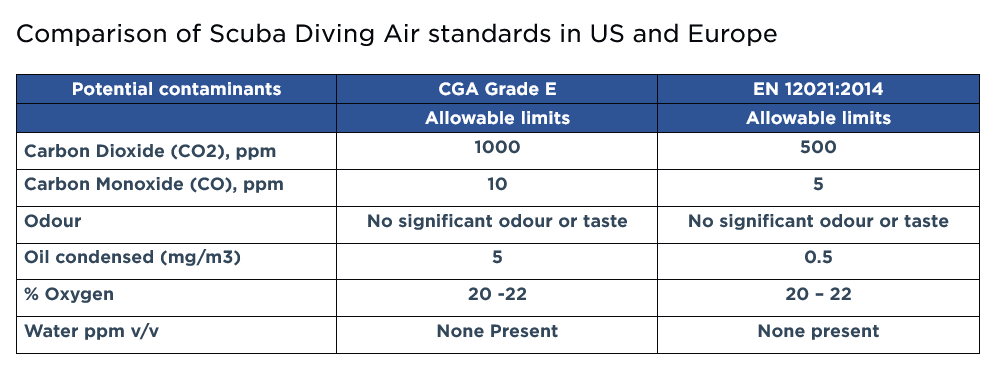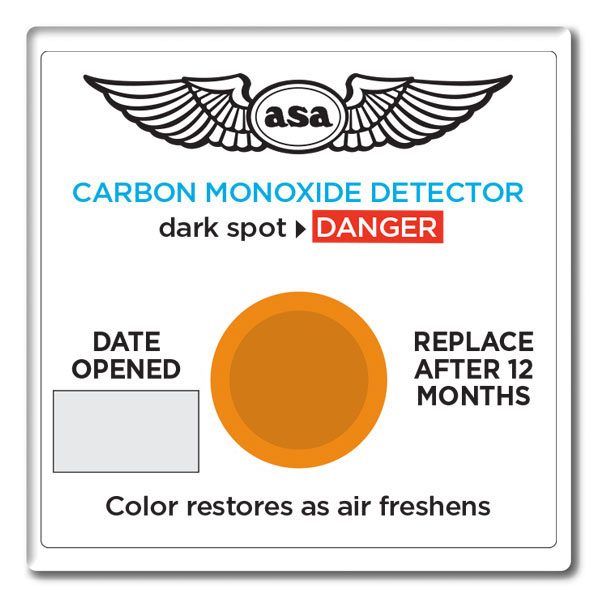- We talk alot about the quality of air that our compressors are capable of. I know my Alkin W31 Mariner has a spec that claims it purifies air to meet the "EN 12021" standard for quality. There's another standard called "CGA Grade E". I know we can have our compressor air analyzed to confirm it's level of purity. But what specifically do these standards mean?
- Recently I was on the MAKO compressor web site and they actually had a chart that defines the air quality standards.

Personal Experience with Carbon Monoxide (CO)
- I have an electronic CO detector in my garage because I fill tanks there during the Summer months. This is with my electric powered RIX and Alkin compressors. I was wondering if the CO detector was working because it never seems to detect any CO.
- But then last Summer, I wanted to use my little gas powered Coltri MCH-6 compressor. I usually set this up outside and with a 10 ft air intake hose positioned high and up wind of the gas engine exhaust. Unfortunately there was not much of a wind to blow the exhaust away. There WAS some wind but it was kind of mild and on and off... I figured it was enough. I started filling my Twin 38s and everything was going nicely. Then, I took my electronic CO detector and placed it right next to the air intake. The next time I looked at the detector, it was reading 38 ppm of CO! What the heck? So I moved the detector around a bit trying to locate a position where it was free of CO... It changed to 68 ppm CO. CRIPES!
- Then I started thinking, "How much CO is acceptable?" Well... NONE! So I turned off the gas engine and emptied out the tanks. The chart above indicates that a certain amount of CO is acceptable in both air purity standards. That's interesting...
Conclusions of using my gas powered compressor...
1. Only use it when there is a definite wind blowing in a consistent direction... So that the intake can be positioned upwind of the exhaust.
2. Use my electronic CO detector to confirm no Carbon Monoxide at the intake.
PS. My CO detector is a household unit that has battery backup... I can plug it into the wall or use it portably.
